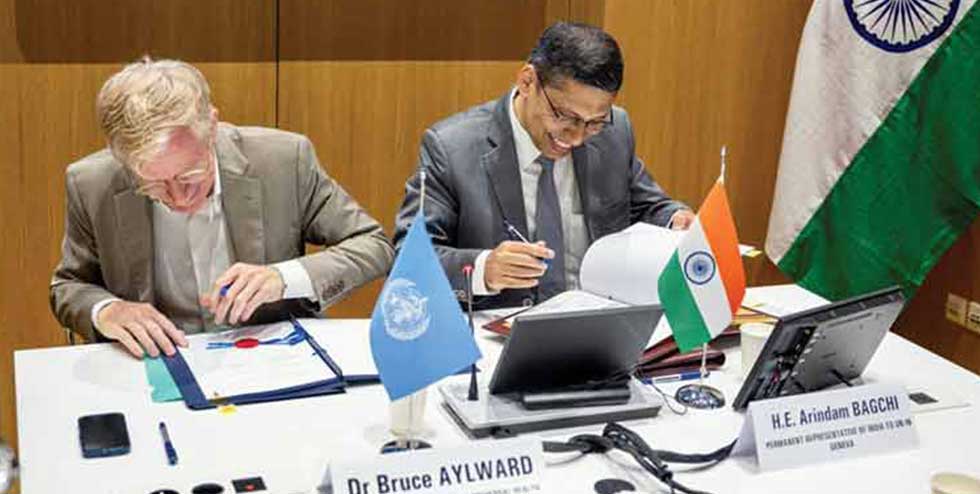GSK Consumer Healthcare, the world's leading over-the-counter (OTC) healthcare and wellness products maker, is shifting its priority focus in India to power brands Sensodyne toothpaste and OTC drugs Crocin, Otrivin and Voltaren.This marks a shift, for the first time in over three decades, away from its mainstay Horlicks in the country.
"We will invest in OTC brands disproportionately.Horlicks doesn't have the power to be globalised though it remains a core brand for India.
Ahmed said the British firm applied 'filters' to select power brands which could be globalised. "So far, Horlicks is very much an India brand and in some pockets like Pakistan, Middle East, Malaysia. Beyond that, we have not been able to globalise it. At a country level, of course, we will retain focus on Horlicks - on innovation and advertising. But the global focus will be on the power brands."
In India, the power brands will be Sensodyne, Panadol (called Crocin in India), nasal decongestant Otrivin and Voltaren pain relieving gels and rubs.
Ahmed, who oversees the Asia-Pacific region including India, China, Japan, Australia, New Zealand, Turkey and Africa, said China remains his biggest market followed closely by India.
Key priority markets for GSK include China, India, Japan, Australia, South Africa and Turkey, as the firm believes it should invest heavily in these markets because the potential of profitable growth is the biggest.
The £23.9-billion GSK plc is looking at learnings from markets like China and South Korea to leverage the ecommerce space, and diversify to categories such as the allergy space, extend the Crocin equity beyond fever, pain, smoking cessation products and oral care.
"In spite of our best efforts, the wellness business is still underleveraged and is heavily dependent on nutrition (Horlicks). In oral health care, our share here is in low single digit of the total toothpaste market. In Turkey,
Sensodyne is the leading brand in the full toothpaste category - it's in the 30s. We're totally underleveraged in these categories in India and we will definitely play in these spaces," he said.
Ahmed said that optimism about GDP, salary increases, consumer confidence indices isn't yet translating into consumption. "We don't see that connect so far and most categories are either flat or in slow single digits. Perhaps by quarter
two-end, we could see an upward swing on consumption."GSK, which is in the process of setting up its Asia headquarters in Singapore for the entire consumer and pharma business, is facing immense shareholder pressure to split up into four separate companies into pharmaceuticals, consumer health, vaccines and HIV medicines.
Ahmed, who led GSK Consumer India for seven years before moving out early last year, said: "It (the split) is very speculative; it's definitely not part of plans and strategy that have been discussed. We've just formed the new JV (with Novartis) and our strategies are focused on sales, profitability and driving shareholder value return."
Post the merger with Novartis, the consumer healthcare business is set to account for about 25% of the business and about £6 billion plus in revenues. Ahmed said the integration with Novartis around people, culture and brands has been tailored to include people and performance. Globally, post the GSK Novartis merger, GSK plc has overtaken Reckitt Benckiser and Johnson & Johnson in the OTC space, in terms of size and topline.








Add Comment